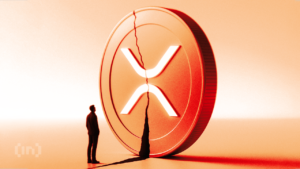What Are Non-Custodial Exchanges?

A non-custodial exchange is a widely used trading platform that enables its customers to maintain complete ownership over their crypto assets. The system provides superior security and defense against potential hacking attempts.
Users can trade cryptocurrencies on non-custodial exchanges, also known as DEXs (Decentralized Exchanges), without storing their assets or private keys. Users can conduct secure trades on the platform using a peer-to-peer network without using a third party, and transfer digital currencies safely in a simple and practical way. To find out more about these topics visit LI.FI.
The most popular non-custodial exchange is Shapeshift, which offers the best service, and some other well-liked platforms include Changelly, Evercoin, and Switchain.
Non-Custodial Exchanges vs. Custodial Exchanges
Non-custodial and custodial exchanges are two types of crypto wallet options when managing digital assets. While non-custodial wallets give users complete control over their private keys, custodial exchanges have a third-party provider handling the user’s private key and controlling access to assets.
When selecting a crypto wallet, security is crucial because custodial exchanges keep keys on centralized servers and are more at risk of attacks from bad actors. Users often retain their keys off-chain in non-custodial wallets, which provides improved security. Offline hardware wallets can further reduce security flaws and boost user privacy.
Offline accessibility is also important, as custodial wallets are only operational while connected to the internet and centralized networks, exposing them to potential cyberattacks.
Non-custodial wallets are also faster, cheaper, and appear on the blockchain in real-time compared to custodial wallets whose transactions require approvals from the central exchange before they can be processed. Unlike custodial exchanges, non-custodial wallets do not require KYC/AML verification, making the account creation process faster and simpler.
Since non-custodial wallet users store private keys by themselves, they must take extra caution when it comes to their assets because misplacing their private keys means losing all of their funds. However, users of custody wallets can reclaim access with a recovery phrase that usually consists of 12. 18, or 24 characters.
Benefits of Non-Custodial Exchanges
For people seeking comfort and privacy, the non-custodial exchange approach is especially useful. Trading without opening an account increases privacy and helps secure assets.
Additionally, trades complete much more swiftly, and if a trade is finished, money is basically immediately returned. People may easily buy digital assets or carry out quick trades thanks to this effective and safe approach without having to worry that their personal information or money will be compromised.
The Risks of Non-Custodial Exchange
The non-custodial exchange may come with a few risks. Users of non-custodial exchange wallets carry more responsibility since they take care of the safety of their private keys by themselves.
There are no customer support options offered and if you need any help with setting up your account or while trading you’ll need to find the answers and solutions on the internet without the guarantee they will be helpful.
Even though security systems of non-custodial exchanges reduce risks of hacking and cyber attack they can be a bit difficult for newbies to handle at first due to all the additional security steps required.















